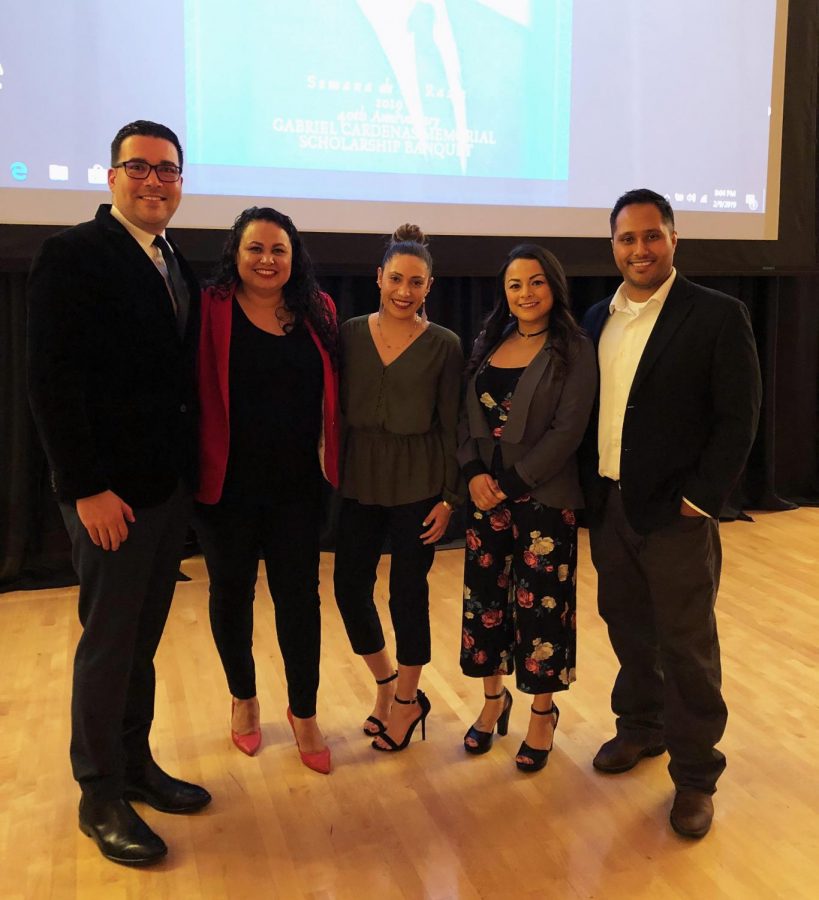Minority students need relatable role models
WSU needs more multicultural faculty to motivate, mentor first-generation students
The staff of La Alianza work toward the representation of more members of the Latino community in positions at WSU. With these examples, other Latino individuals will be encouraged to pursue college.
February 21, 2019
There are programs set in place to mentor and assist Latino students, but there are not enough multicultural faculty at WSU to devote enough time and effort to these students.
Latino students in Washington need support as one of many minority groups at WSU that don’t often have reinforcement or assistance to attend college. Most minority groups consist of first-generation college students who often do not have faculty on campus to turn to for advice regarding college and feel lost once they arrive.
By encouraging groups to provide this advice, it ensures that these students have someone to rely on, relate to and, most importantly, help them succeed throughout the course of their undergraduate education.
La Alianza is an organization I’m part of that seeks to facilitate and encourage leadership by Latino alumni, promoting the enrollment and development of Latino students at WSU.
By building relationships between prospective and current students, La Alianza hopes that students will use their educational and professional experiences to impact subsequent generations of Latino students. This will create a positive perspective for the educational and social futures of WSU students.
Karla Blanco, the president of La Alianza, is certainly pushing for this goal.
“If there’s a student that’s in need,” Blanco said, “we can help build those partnerships with other people, like alumni.”
This organization reaches out to incoming and current students at WSU by creating a welcoming community and are motivated to continue pursuing higher education. By doing so, they hope to increase the enrollment and retention rates of students within higher education, with the primary focus set on Latino students.
“A significant number of us are first-generation college students,” Blanco said. “We have to really find people who look like us but also who are willing to support us.”
Promoting higher education to students of color by venturing to underrepresented areas like Yakima Valley, Tri-Cities and Walla Walla, La Alianza hopes to raise awareness about the steps to enroll at WSU and provide support for students in need.
“[We’re] a strong cohort of individuals that are willing to go out into communities and help with that because we don’t have a lot of role models,” Blanco said. “I think we have way more than we used to in the past, but I think [that’s] more because we are underserved.”
Members of the La Alianza organization consist of alumni and students who volunteer their time within the organization. Recruited students and staff fill leadership and mentor positions on campus, taking on the role of guiding first-generation college students who do not feel a sense of encouragement from their own community.
The emergence of this organization and others like it is a way to prompt the enrollment and ensure the retention of students of color. But there are not enough people available to ensure members of these organizations can devote time and effort to each individual who seeks assistance.
“I know that there are committees that try to hire faculty of color, but something is happening where there is a gap there because it is not translating to bringing in people of color,” Blanco said. “I think what happens is that our current faculty of color that we have … trying to be role models are overextended because there’s only a few.”
To ensure that a sense of equity is present for students who identify as multicultural or are first-generation, there must be faculty of color for students to turn to.
Furthermore, WSU must make a conscious effort to hire new faculty with varied ethnic backgrounds rather than strain the faculty already present at WSU.








